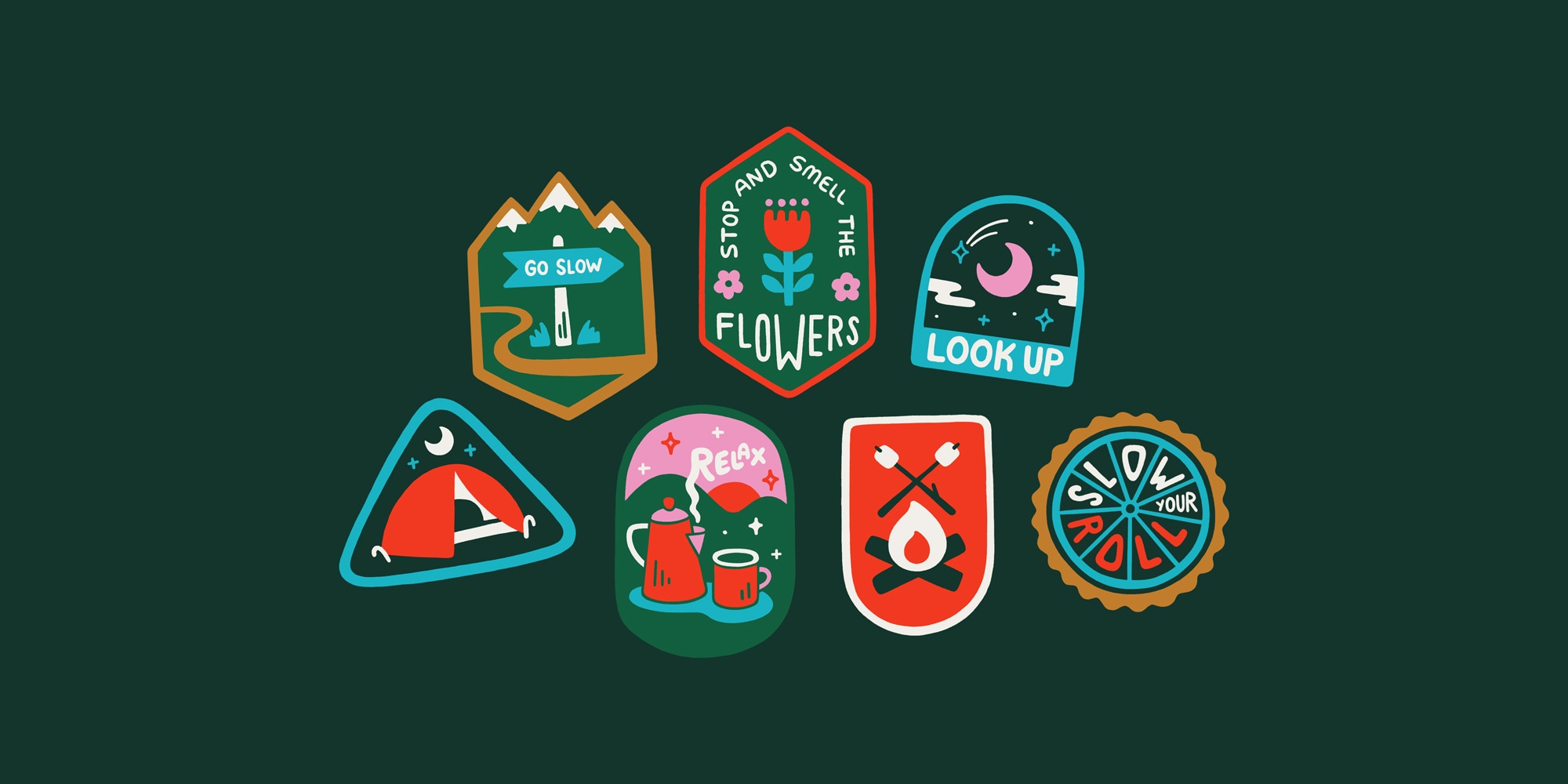Sports have long celebrated winners. And in the outdoor space, winning typically means going fast. This go-quick mentality spills into many areas of people’s lives, even when slowing down can benefit them more.
It’s not just athletics traditionally associated with paces and finish lines, like running or biking, that venerate the speedster. Hikers compete for Fastest Known Times, or FKTs. Backpacking has spawned fastpacking. The sport climbing disciplines in the Olympics involve a race against the clock. Consistently, those who move from point A to point B in the least amount of time get the glory.
Camping is a notable exception in the outdoor space, though. When we make plans to sleep outside—whether we’re miles from other people, tucked into a group site or in our own backyard—the whole point is to slow down. When we recount our camp adventures to friends, we highlight how relaxing the tent time was, how great it felt to escape the hectic pace of everyday life, and how we loved just taking a minute to bask in birdsong or the glow of a campfire. Intuitively, we seem to know that going slower in the short term will help us live better in the long term.
And yet, many of us don’t do this often enough. As Canadian journalist Carl Honoré points out in his book In Praise of Slowness: Challenging the Cult of Speed, the desire to move quickly touches many parts of our lives. We use microwaves to cook our meals faster and listen to podcasts and audiobooks on 2x speed. “These days, the whole world is time-sick,” he says. “We all belong to the same cult of speed.”
The Benefits of Slowing Down
There are perks to hitting the proverbial brakes. Taking pauses from our work can improve our mood and increase motivation. Eating more slowly can help us feel satisfied sooner. In the REI Co-op Studios short film ”How I Became a Runner,” Seattle-based running coach Ashley Davies explains to Laguna Hills, California, REI store manager Alan Ortega that, paradoxically, training at a slower pace can help us run faster.
“There will be times when you go for the time and times you go for the vibes,” Davies says.
And as Honoré points out in his book, “Some things cannot, should not, be sped up. They take time; they need slowness.” Spending time outside is one of those things. Countless studies— we’ve reported on several, including one that explores nature as medicine and another that addresses how just two hours outside a week can benefit our health—show that spending time in nature can be healing. And too often, we’re rushing through it.
Maybe you remember why the tortoise in Aesop’s famous fable “The Tortoise and the Hare” took first place: “Slow and steady wins the race” is a well-known mantra many second-graders can recite. But do you recall why the rabbit came in second? He took a trailside nap. Perhaps it’s worth rethinking who the true victor was in this story. Both animals spent time outside. But the hare effectively went camping.
What if we took camping’s goal (slowing down) and applied it to our other outside pursuits? Let’s take a look.
What Camping Can Teach Us
| When we camp, we … | If we apply the “camp mentality” to other outdoor activities, we might … |
| Assess the landscape to find the best spot to pitch the tent, ideally somewhere flat and smooth. | Take the time to snap a sunrise photo on a hike—or take an outdoor photography class (like this one from REI). |
| Take time to lean back in our chair and soak in views of the aspen trees, granite formations or sand dunes around us. | Pause mid-hike to identify the flowers or observe the rocks that our tiny hiking companions point out. |
| Remember that hammock naps are a source of bliss. Our bodies need rest, so we string up the Roo or DoubleNest and snooze away guilt-free. | Heed our grumpy muscles and slow down while biking. This can help us ride better next time. |
| Remove our tent’s rain fly on a clear night, so we can spot constellations while drifting off to sleep. | Plan a mellow night hike (like this REI Star Walk or Moonlit Hike and Bonfire) to enjoy star-studded skies. |
| Munch on some GORP and sip freshly purified stream water (or something stronger) while laughing with friends. | Resist the urge to throw the bikes on the car rack after a ride and instead carve out time for a post-ride drink or snack. |
| Sit around the campfire telling spooky stories. | Temper the pace on our next run to make it easier to talk—really talk—with our running buddies. |
| Recline in our camp chair and watch the sun set. | Join a friend for a slow sunset hike or walk. (Or, if you live in California, sign up for a Sunset Hike and Yoga at Crystal Cove.) |
Finding the Balance
Don’t get me wrong. I agree that upping the pace during certain pursuits can have its merits. Sometimes a pressing deadline or the rigors of running a household demands that we return ASAP from a hike, climb or ride. Crushing a personal record, pushing physical or mental limits, working up a sweat and feeling more wind in our hair can be incredibly rewarding. Going fast isn’t a bad thing. It’s just that going slow isn’t either. With camping, as with many other outdoor activities, the real goal is just to get outside. Do that, and you win.
